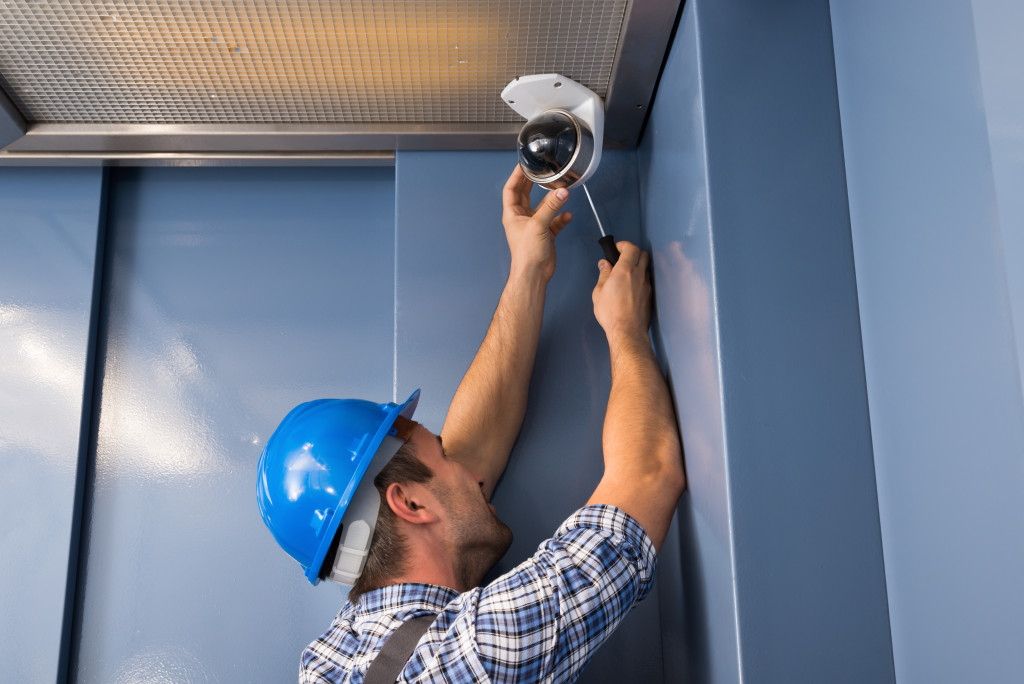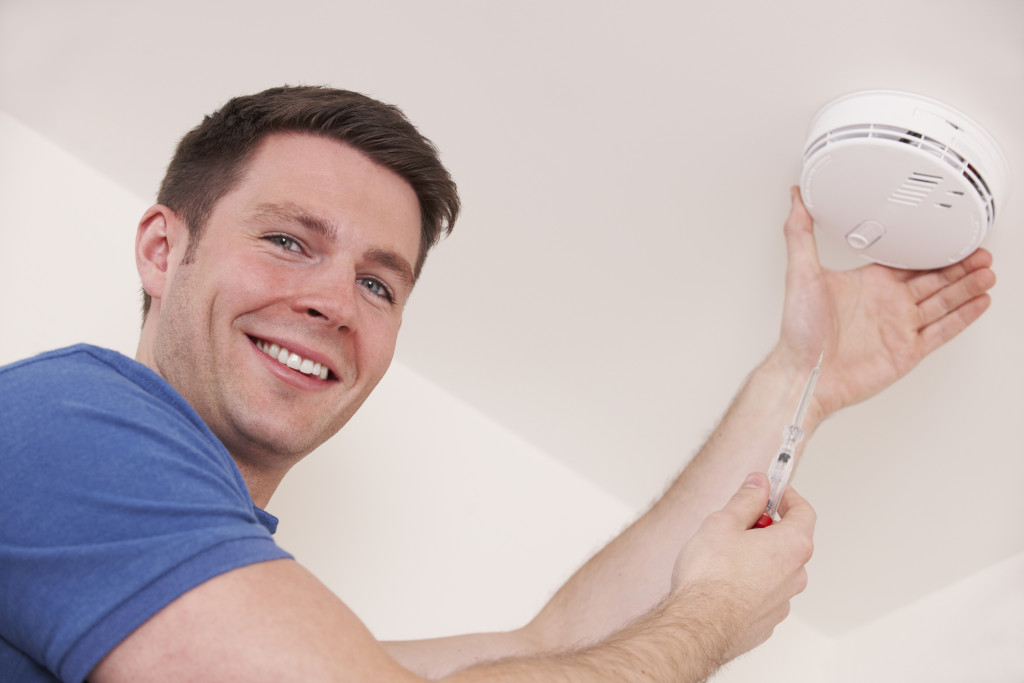- Trim trees and shrubs to mitigate the risk of high winds and invest in quality tools to remove overgrown vegetation.
- Inspect roofs for missing shingles, broken tiles, or other structural deficiencies; make necessary repairs if needed.
- Install surge protectors and check them regularly to protect from electrical and power surges.
- Secure doors and windows with quality locks, and install a security system with motion sensors around the home.
One of the best ways to keep your home safe and secure is to stay aware of potential dangers and take proactive steps to mitigate them. But with so many potential threats inside and outside the home, it can be challenging to stay informed. That’s why it’s essential to make an effort to protect your family and property. Here are some strategies and tips to help you do just that:
Weather Damage
Severe weather can cause all sorts of damage to your home, from high winds and flying debris to flooding and power outages. To help protect your home from weather damage, here are a few things you can do:
Maintain Your Plants
Keep trees and shrubs trimmed, so they are less likely to fall or blow over in high winds. If left unchecked and allowed to grow too close to your house or power lines, many trees can be hazardous in extreme weather. So maintain your plants and invest in a quality chainsaw if needed. This way, you can safely remove any overgrown vegetation.
Check Your Roof
When it’s safe, get up on your roof and inspect it for any signs of damage or wear. Make sure there are no missing shingles, broken tiles, or other structural deficiencies. If you see any of these issues, make the necessary repairs or replacements as soon as possible. This will help keep your home safe from the elements.
Protect Your Electrical System
Make sure to install surge protectors and check them regularly. This will help prevent electrical and power surges from damaging your home. Additionally, check the wiring and outlets to ensure they are up-to-date and meet safety standards. When in doubt, contact a certified electrician to inspect the system. Doing so can help protect your property from costly fire or water damage.
Install Flood Control
It’s best to invest in electric well pumps to help protect your home from water damage. This machine works by pumping water away from your home, which can minimize the risk of flooding or other damage. Additionally, if you live in an area that is prone to flooding, consider investing in a sump pump or other flood control measures such as elevated sandbags.

Home Intruders
Unfortunately, homes are often targeted by thieves and intruders. This means you have to do your best to keep your home safe from intrusion. Here are some tips to deter potential criminals:
Install Quality Locks
Make sure to install high-quality locks on all doors and windows. Additionally, consider installing a security system to monitor and protect your property. Most modern security systems have motion sensors, cameras, and other features to protect your home from intruders. This can be an excellent investment and will give you peace of mind knowing that your family and home are safe.
Upgrade Windows and Doors
If your windows and doors are outdated or show signs of age, consider replacing them. Make sure to choose sturdy, durable materials that can’t be easily broken into. You should also opt for windows and doors with locking mechanisms that are difficult to bypass. And lastly, be sure to install strong deadbolts for extra security. This way, you can rest assured that your home is safe and secure.

Additional Safety Precautions
There are also other measures you can take to protect your family and property. These are safety precautions that can help minimize the risk of accidents and other hazards:
Carbon Monoxide Detectors
Carbon monoxide is a colorless, odorless gas that can be deadly if not detected. To help ensure your home is safe, install quality carbon monoxide detectors in appropriate areas of the house. These can be lifesavers and are a must for any household.
Smoke Detectors
Be sure to install smoke detectors throughout your home. Fires can be hazardous and can cause significant damage to your home. Smoke alarms are an essential safety device, so install them in the proper locations. This way, you can be alerted to a possible fire and take the necessary steps to get your family to safety.
By taking these strategies and tips into consideration, you can better protect your family and property. Stay aware of potential threats and be proactive in securing your home from outside dangers. With the right initiatives, you can keep your family safe and secure for years to come.



















